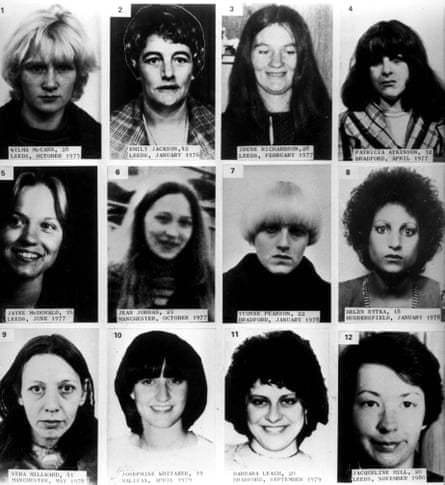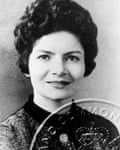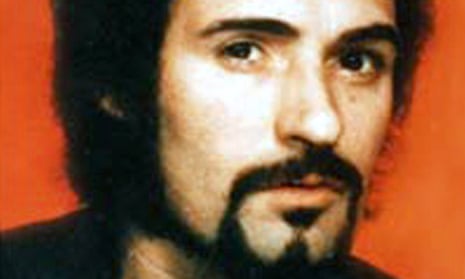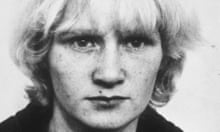Peter Sutcliffe, the serial killer known as the Yorkshire Ripper, has died in hospital, a Prison Service spokesman said.
Sutcliffe, 74, was serving 20 life terms at Frankland prison in County Durham for murdering 13 women and attempting to kill seven more in the late 1970s.
A Prison Service spokesman said: “HMP Frankland prisoner Peter Coonan (born Sutcliffe) died in hospital on November 13. The Prisons and Probation Ombudsman has been informed.”
It is understood that Sutcliffe died at University hospital of North Durham, 3 miles from the prison, after being sent there with Covid-19. He was in ill-health, was obese and had diabetes, but reportedly refused treatment.
His admission to the hospital came two weeks after he had been treated there for a suspected heart attack.

Boris Johnson’s official spokesman said it was “right” that Sutcliffe had died behind bars. He said: “The prime minister’s thoughts today are with those who lost their lives, the survivors and with the families and the friends of Sutcliffe’s victims.”
Brian Booth, the chairman of the West Yorkshire Police Federation, said: “The monster who murdered so many innocent women in and around West Yorkshire should rot in hell. He is the very reason most people step to the plate and become police officers – to protect our communities from people like him.”
Sutcliffe used hammers and screwdrivers to murder his victims over a five-year period, between 1975 and 1980. He targeted women from all walks of life – the youngest was 16, the oldest 42 – sparking a reign of terror that meant no woman in the region felt safe. In some areas, police warned women not to go out alone at night.
The 13 women Sutcliffe was convicted of murdering were:
Wilma McCann, 28, from Chapeltown, Leeds, who was killed in October 1975.
Emily Jackson, 42, from Morley, Leeds. Killed on 20 January 1976.
Irene Richardson, 28, from Chapeltown, Leeds. Killed on 6 February 1977.
Patricia Atkinson, 32, from Manningham, Bradford. Killed on 24 April 1977.
Jayne MacDonald, 16, from Leeds. Killed on 26 June 1977.
Jean Jordan, 21, from Manchester, who died between 30 September and 11 October 1977.
Yvonne Pearson, 22, from Bradford. Killed between 20 January and 26 March 1978.
Helen Rytka, 18, from Huddersfield. Killed on 31 January 1978.
Vera Millward, 40, from Manchester. Killed on 16 May 1978.
Josephine Whitaker, 19, from Halifax. Killed on 4 April 1979.
Barbara Leach, 20. Killed while walking in Bradford on 1 September 1979.
Marguerite Walls, 47, from Leeds. Killed on 20 August 1980.
Jacqueline Hill, 20. Killed at Headingley on 16 November 1980.
Despite the 2.5m police hours expended on catching Sutcliffe, a mishandled investigation meant he remained at large for six years. He was interviewed – and released – nine times in connection with the killings, with officers repeatedly missing clues that could have led to an earlier conviction.
Former detective Bob Bridgestock said senior detectives “wore blinkers” during the inquiry. “It’s the victims that served the life sentence and then the victims’ families that really serve the true life sentences,” he said.

In 1976, Marcella Claxton, 20, was hit over the head with a hammer near her home in Leeds; she survived and produced an accurate photofit but was discounted as a Ripper victim, because police said she must have been attacked by a black man, according to the English Collective Prostitutes . Police overlooked that Sutcliffe had been arrested in 1969 for carrying a hammer in a red light district, and an anonymous letter sent by his friend Trevor Birdsall to try to expose him.
For a significant period, George Oldfield, West Yorkshire police’s assistant chief constable, was put off the track by a tape purporting to be from the killer that later turned out to be a hoax.
At his Old Bailey trial, Sutcliffe said: “It was just a miracle they did not apprehend me earlier – they had all the facts.”
Eventually, in January 1981, Sutcliffe was stopped with a sex worker. When officers found screwdrivers in the glove compartment of the vehicle, others went back to the scene of the arrest and found a hammer and knife 15 metres (50ft) from where the vehicle had been.
As the net closed, Sutcliffe unexpectedly confessed, and calmly told Det Insp John Boyle: “It’s all right, I know what you’re leading up to. The Yorkshire Ripper. It’s me. I killed all those women.”
Richard McCann, the son of Sutcliffe’s first-known victim, Wilma McCann, said he had ruined many lives. “He will go down as one of those figures from the 20th century in the same league I suppose as someone like Hitler,” he told Sky News.
“It was never just a drunken fight, he went out there with tools and implements and he murdered people again and again and again and again.”








